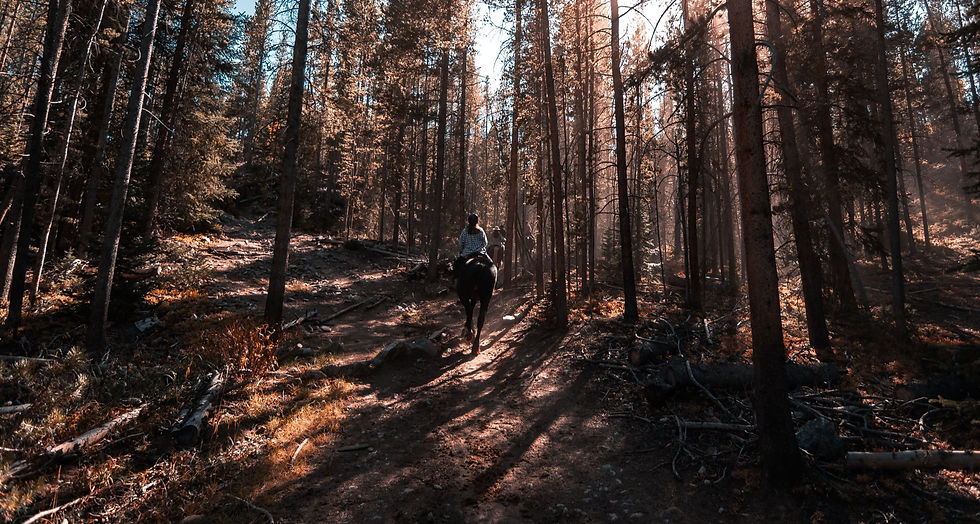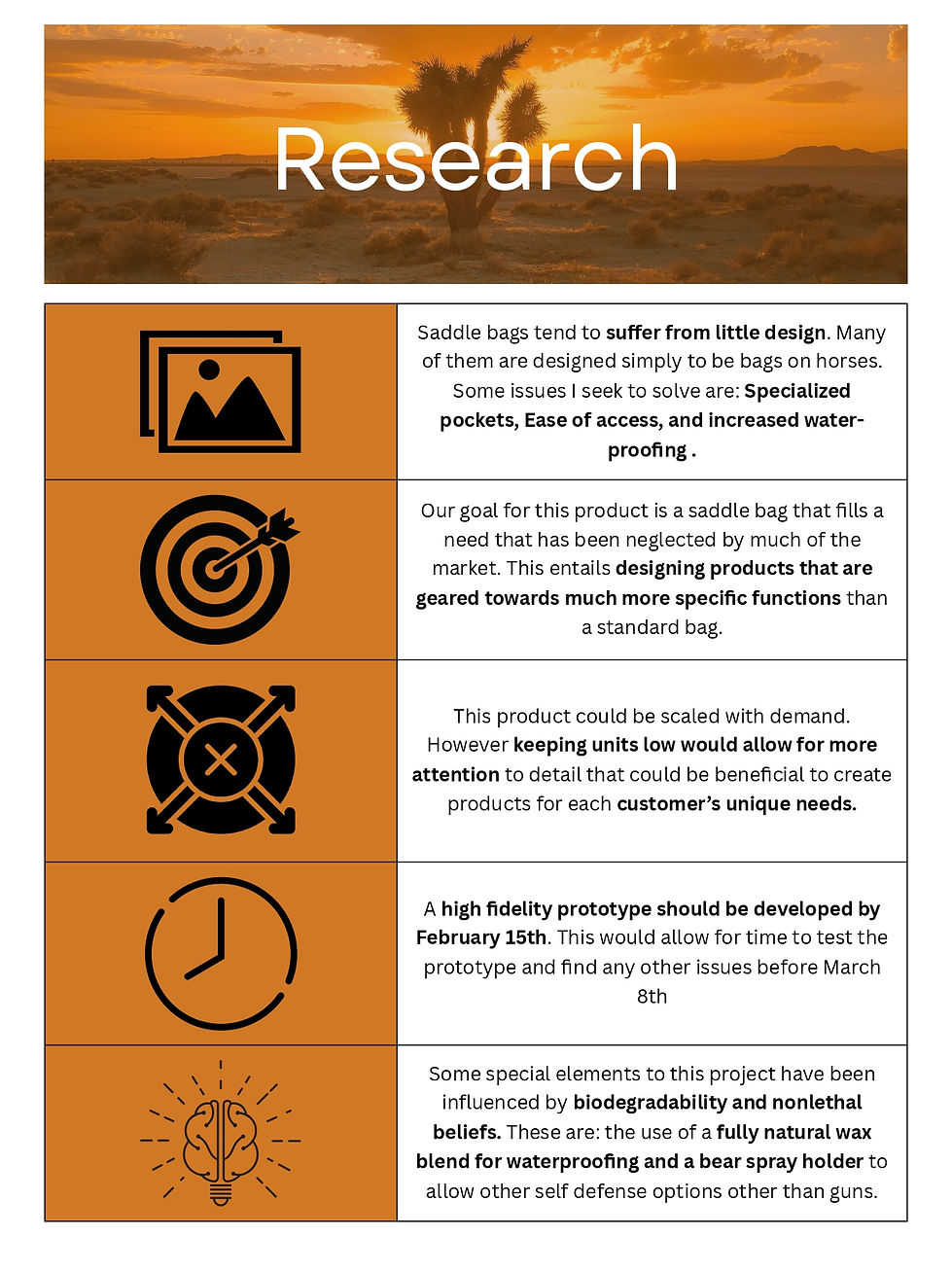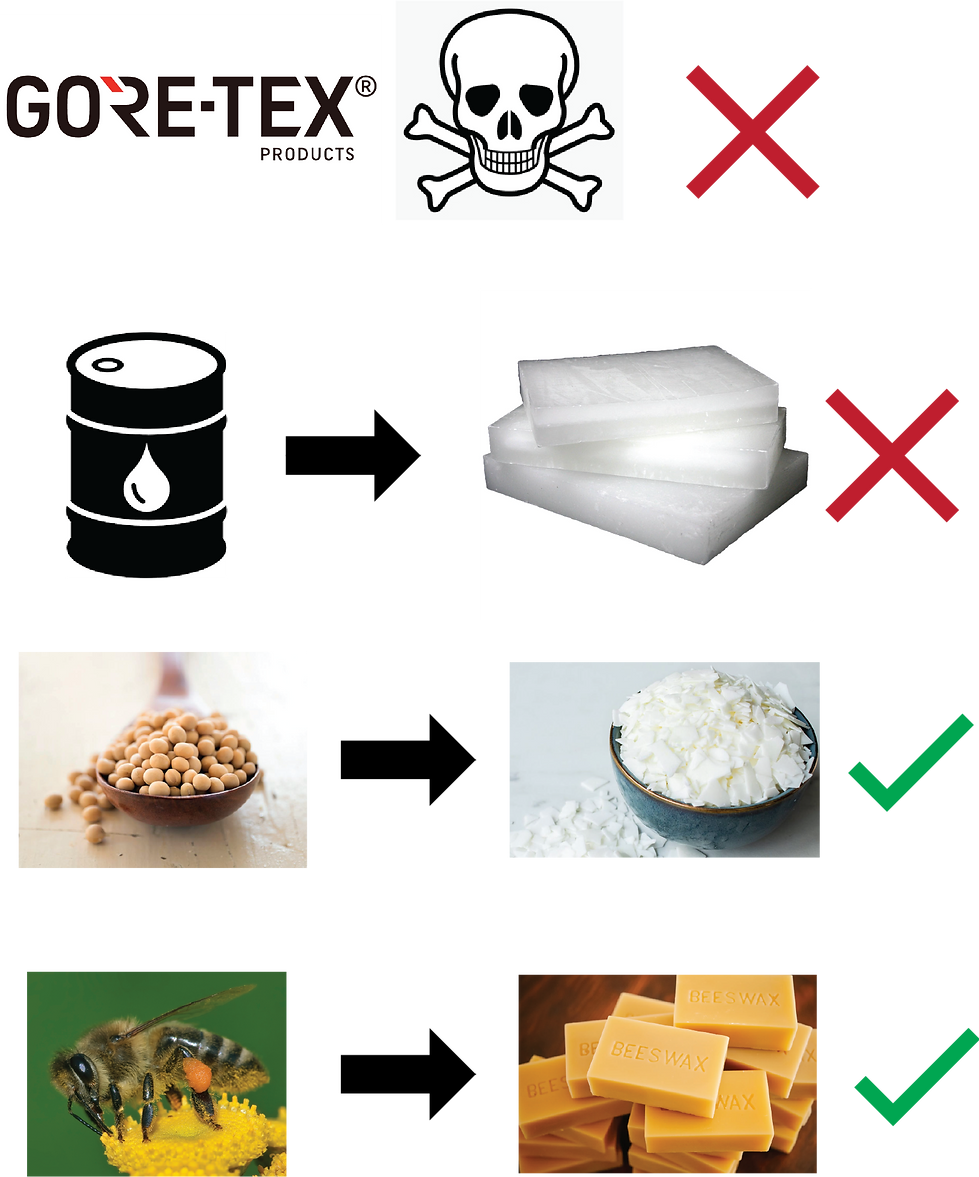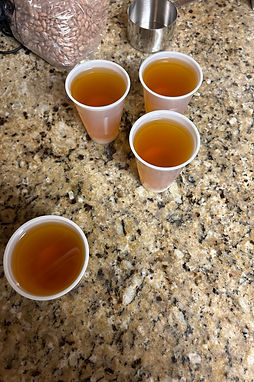
Ergonomic Saddle Bag
Problem

Saddle bags require heavy duty construction for rough riding however, many options in the field stop at that. Saddle bags could be improved through inclusion of easy access pockets for important items such as Bear spray, horse care equipment, or a pistol. Water proofing should also be a focus in this project.
_page-0001%20(1).jpg)
Persona and Mood Board


Ideation

For my Low-Fidelity Prototype, non-woven fabric was used and stapled together to verify the correct pattern before more expensive and time consuming processes and materials were used. This prototype gave great insight into the length of the base piece. After this it was decided that 5 inches should be added to its length and the shape of the middle portion to better suit a horses back and saddle position.


Low-Fidelity Prototyping


Revision

Water Proofing



High Fidelity Prototype
Water Proofing
For my High Fidelity Prototype I chose to create my own wax mix for the canvas. I chose to use a 50/50 split of soy and bees wax. This was because I wanted to avoid the use of petroleum based paraffin wax or toxic PFAS. I chose to add tea tree and a little cedar wood essential oil in order to hopefully allow the bag to not smell strongly of horse, and to give an extra little something to this product.

Challenges
After cutting slightly oversized square pieces to reduce the waste of wax and time, wax was applied to the surface and melted into the fabric using a heat gun in two cycles.

The thickness of the fabric and the wax embeded into it caused concerns that many standard sewing machines could not break through several layers of the fabric. Because of this, an industrial machine was selected to be used to sew together the materials.

My next challenge came with sewing leather. I elected to sew it by hand to give another handmade element to the project, and add to my own experience with the practice of hand sewing.

After starting the sewing process I came to realize just how detrimental the thickness of my fabric choice was. This is due to the thickness and the fact that the machine I primarily used is very old, I elected to not double roll the hems. This lead to a less than neat look to the project. If I were to continue with this project after my portfolio I would look into lighter duty materials such as a 20 or 15 oz canvas as opposed to the 30 oz I used.

Hand sewing came in handy once the sewing machine jammed. I originally wasn't sure how to complete this project until I unpacked my sewing bag and pulled out my leather awl. Then I realized even if the stitches were less uniform and the pockets more rudamentary than originally planned, I could complete this prototype by hand and learn from the process all the same.
Final Result


Despite the trouble I had with the sewing machine, I was quite happy with the results. In the future I plan to have larger flaps that go over the sides of the bag and to keep investigating the possibities of pockets for easy access.









